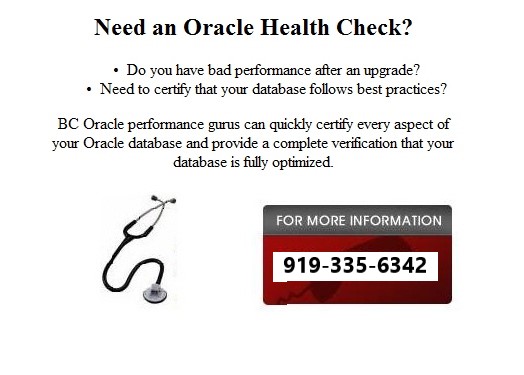This is an
excerpt from the book
Advanced PL/SQL: The Definitive Reference by Boobal Ganesan.
Unicode was accepted and implemented
in Oracle starting from the version 7. From then on, there
were many series of migrations in the encoding methods
resulting in a character set with the support of most of the
characters used in the world.
The Oracle naming convention for its
character set is shown below.
<Language> <Bit size> <Encoding
method>
The encoding methods used in Oracle
are explained below.
AL24UTF-FSS
This was the first Unicode character
set supported by Oracle in the version 7.2 as a database
character set. This is an acronym for AL - All languages,
24- Bit size, UTF-FSS - encoding scheme. This followed the
UTF-8 encoding methodology in the Unicode standard 1.1 which
is unsupported in the Oracle version 9i. The migration of
the existing AL24UTF-FSS is to upgrade to UTF8 prior to the
version 9i migration.
UTF8
This was the UTF-8 encoded character
set in the Oracle version 8 and 8i and it did not follow the
Oracle naming convention for the Unicode characters. UTF8
followed the Unicode version of 2.1 between the versions 8.0
and 8.1.6, and was upgraded to the version of 3.0 during
8.1.7 and 9i. Even though the specific supplementary
characters were not assigned in the version 3.0, their
allocation were already done so that they don't corrupt the
actual data inside the database when they are migrated to
the version 3.1.
UTFE
This is the UTF8 database character
set for the Extended Binary Coded Decimal Interchange Code
(EBCDIC) platforms, which is an 8-bit character encoding
mainly used on IBM mainframe and IBM midrange computer
operating systems.
AL32UTF-8
This is the UTF-8 encoded character
set introduced in the Oracle version 9i and continues till
12c as the database character set. This database character
set supports the latest version of the Unicode standard with
the support for the newly defined supplementary characters
which are stored in 32-bit. The database character set
supports CHAR, VARCHAR2, CLOB and LONG data types. This does
not support the national character set.
AL16UTF-16
This is the UTF-16 encoded character
set introduced in the Oracle version 9i and continues till
12c as the national character set. The national character
determines the set of SQL data types such as NCHAR,
NVARCHAR2 and NCLOB. This does not support the database
character set.
 |
Need to learn to program with PL/SQL?
For complete notes on programming in PL/SQL, we
recommend the book
Advanced PL/SQL: The Definitive Reference by Boobal Ganesan.
This is a complete book on PL/SQL with
everything you need to know to write efficient and
complex PL/SQL code. |
|
|
|
|
|
Oracle Training from Don Burleson
The best on site
"Oracle
training classes" are just a phone call away! You can get personalized Oracle training by Donald Burleson, right at your shop!

|
|
|

|
| |
|
Burleson is the American Team

Note:
This Oracle
documentation was created as a support and Oracle training reference for use by our
DBA performance tuning consulting professionals.
Feel free to ask questions on our
Oracle forum.
Verify
experience!
Anyone
considering using the services of an Oracle support expert should
independently investigate their credentials and experience, and not rely on
advertisements and self-proclaimed expertise. All legitimate Oracle experts
publish
their Oracle
qualifications.
Errata?
Oracle technology is changing and we
strive to update our BC Oracle support information. If you find an error
or have a suggestion for improving our content, we would appreciate your
feedback. Just
e-mail:
 and include the URL for the page. and include the URL for the page.


Copyright © 1996 - 2020
All rights reserved by
Burleson
Oracle ®
is the registered trademark of Oracle Corporation.
|
|
